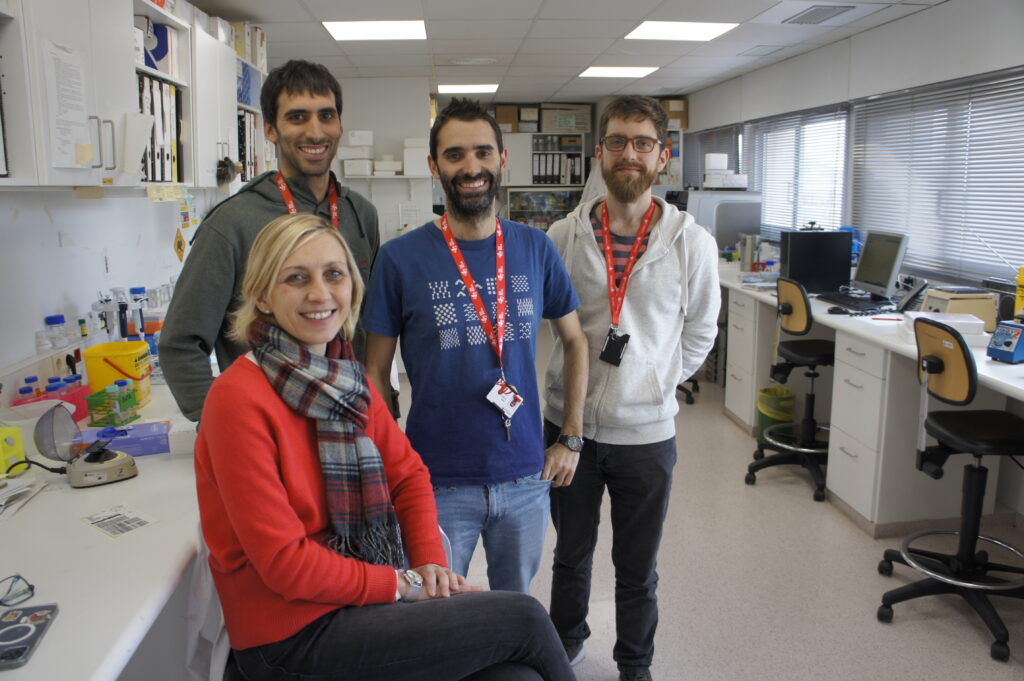The Hematopoietic Stem Cell Biology and Leukemogenesis group at IDIBELL, headed by Dr Alessandra Giorgetti, associate professor at University of Barcelona has discovered an additional level of gene regulation associated to the evolution of GATA2 deficiency, a rare genetic disorder that can have hematological clinical manifestations such as a type of leukemia. Now, the researchers profiled the genome and epigenome of patients with a heritable mutation in GATA2 gene, identifying a specific DNA methylation pattern.
DNA methylation is a natural process that modifies the genome by adding chemical tags to certain regions of the genetic code. These tags can turn genes on or off, affecting the function of the cells. In individuals carrying GATA2 mutations, the researchers found that certain regions of DNA were abnormally methylated, which could explain the disease evolution to severe clinical manifestations.
The study, published this week in the journal Haematologica, involved analyzing DNA samples from 20 GATA2 carriers and 8 healthy individuals. The researchers, also members of the Program for Clinical Translation of Regenerative Medicine in Catalonia (P-CMRC), used advanced sequencing technologies to map out the epigenetic changes in the DNA, creating a detailed profile of each individual´s epigenome.
According to Oskar Marin Bejar, Marie Skłodowska-Curie postdoctoral researcher at IDIBELL and first author of the study: “For many years, the translational researchers and clinicians have focused their attention on the characterization of DNA mutations in specific genes associated with the disease; however, we cannot ignore that gene expression alterations and epigenetic changes might have an impact in its progression”.
By comparing the epigenome of both groups, the researchers were able to identify a specific DNA methylation signature associated with GATA2 deficiency, which could be used in the future to diagnose the evolution of GATA2 deficiency earlier and accurately.
The study provides important insights into the underlying mechanisms of GATA2 deficiency and highlights the potential of epigenome profiling as an analytical tool for genetic disorders. With further research, this methodology might help clinicians in the diagnostic process and in the decision-making of the most suitable treatment, from rare diseases like GATA2 deficiency to more common disorders with an early genetic event, such as cancer.
The project has been a collaborative effort between Fondazione Pisana per la Scienza ONLUS, GATA2-HuMo consortium, GESMD, and Josep Carreras Institute, among others; furthermore, it would not have been possible without the funding agencies, especially, EraPerMed and the European Hematology Association (EHA) kick-off grant.

